- Home
- WELCOME
- COMMITTEES
- PROGRAMME
- SPEAKERS
- AWARDS
- ABSTRACTS
- REGISTRATION
- ACCOMMODATION
- GENERAL INFORMATION
- SPONSORS
- PREVIOUS EDITIONS

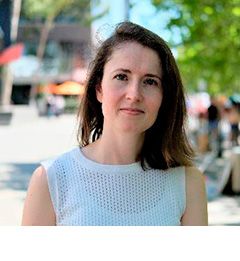
Bekkering, Siroon
Siroon Bekkering, obtained her Ph.D in 2017 at the department of Internal Medicine in the Radboud University Medical Centre in Nijmegen, the Netherlands, under supervision of prof. Mihai Netea and prof. Niels Riksen. She studied the role of innate immune memory (also known as trained immunity) in the context of atherosclerosis. Her research includes translational studies both in humans in vivo as well as in vitro on human cells and is published in high impact journals such as Circulation and Cell. After her PhD, she carried out a Postdoc under the mentorship of prof. Erik Stroes at the Amsterdam University Medical Center. Here she continued her studies to the role of innate immune memory in a broad spectrum of patients at risk for developing Cardiovascular Disease. After 1,5 year, she moved back to Internal Medicine in Nijmegen, the Netherlands, to continue her work with prof. Niels Riksen and prof. Mihai Netea. There she obtained two grants, making her able to move to Melbourne for a postdoc abroad. From September 2018-February 2020 she performed a postdoc in the Murdoch Children’s Research Institute, working at the department of Inflammatory Origins with prof David Burgner and Complex diseases with prof Richard Saffery. Here she studied the role of trained immunity in cardiovascular disease development in children, with a focus on obesity induced inflammation and infections. Since March 2020 she is back in the Radboudumc, where she continues her work on trained immunity in CVD, with a focus on progenitor cells in the bone marrow.
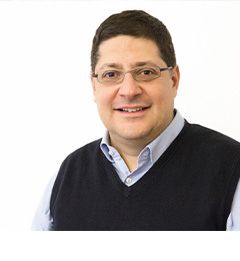
Chavakis, Triantafyllos
Prof. Dr. T. Chavakis, is a physician-scientist and director of the Institute for Clinical Chemistry and Laboratory Medicine of the University Clinic Dresden since 2017. He was a principal investigator and head of the Inflammation Biology Section of the Experimental Immunology Branch, National Cancer Institute, NIH, Bethesda MD from 2005-2010. His research focuses on Innate Immunity and Metabolic Inflammation. Specifically, his lab aims at identifying mechanisms that are involved in the regulation of inflammation in the context of metabolic-inflammatory pathologies (obesity-related insulin resistance and NAFLD), inflammatory bone loss and cancer. A further focus is on innate immune cell generation (myelopoiesis) and activation in the context of trained innate immunity (innate immune memory).
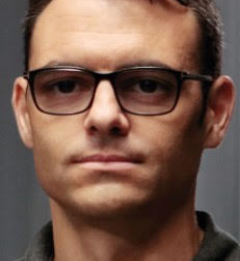
Del Fresno, Carlos
Carlos del Fresno Sánchez is the Group Leader of the Immunomodulation lab of the Innate Immune Response group at Hospital La Paz Institute for Health Research (IdiPAZ) in Madrid. He received his Ph.D. from Autónoma University, performing rotations at the Mario Negri Institute (Milano, Italy) and University of Brescia (Brescia, Italy). He continued his postdoc career at the National Center for Biotechnology (CNB-CSIC), and as AECC Researcher at the National Center for Cardiovascular Research (CNIC) before gaining his current Principal Investigator position. Since his first steps in science, he has been interested in reprogramming processes occurring in myeloid cells in different contexts such as bacterial sepsis, fungal infections, and cancer. He is currently interested in the study of immunological responses to clinical therapies and cancer, looking for diagnostic and prognostic markers, as well as in the development of antitumor vaccines. Furthermore, his lab has generated relevant contributions in the field of trained immunity, a memory-like process of innate immune cells that is also an active matter of research in his group.
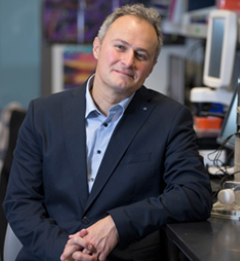
Divangahi, Maziar
Dr. Maziar Divangahi, is a Professor of Medicine at McGill University. Dr. Divangahi is the
Associate Director of the Meakins-Christie Laboratories, Co-Leader of the Respiratory Program
at McGill University Health Centre, and an Associate Director of the McGill International TB
Centre. He is an internationally recognized pulmonary immunologist and the overarching focus of
his research program is to investigate the regulatory mechanisms involved in host resistance and
disease tolerance against major pulmonary bacterial (Mycobacterium tuberculosis) and viral
(influenza virus and SARS-CoV2) pathogens. He is currently investigating how to harness the
power of innate immunity in vaccine via reprogramming of hematopoietic stem cells. Throughout
his career, he has been a proliferative investigator publishing in outstanding journals and received
numerous awards, including a CIHR New Investigator Award, FRQS Award, and the CIHR
Foundation grant. His scholarly work has been recognized by election to the Royal Society of
Canada. He is currently holding the Strauss Chair in Respiratory Diseases.
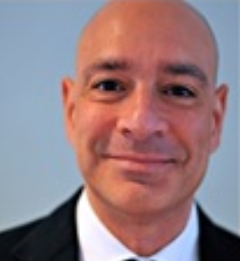
Fayad, Zahi
Zahi A. Fayad, PhD serves as the Lucy G. Moses Professor of Medical Imaging and Bioengineering at the Icahn School of Medicine at Mount Sinai. He is Professor of Radiology (vice-chair for research) and Professor of Medicine (Cardiology). He is the founding Director of the BioMedical Engineering and Imaging Institute (ranked 15th in 2021 NIH funding in the field of Radiology). Dr. Fayad’s research has been dedicated to the detection and prevention of cardiovascular disease with many seminal contributions in the field of multimodality biomedical imaging (MR, CT, PET and PET/MR) and nanomedicine. Recent collaborative work has been in: 1) the study of psychosocial stress exposure in the brain, the cardiovascular system and the immune system; 2) the development of platform nanotechnology to produce nanobiologics for immunotherapy in multiple disease conditions; 3) the development of the Mount Sinai Imaging Research Warehouse (de-identified, pseudo-anonymized images and metadata) as a unique repository of radiological imaging/reports for focused imaging and general healthcare research; 4) Covid data and data science research by co-founding the Mount Sinai COVID Informatics Center now known as the Mount Sinai Clinical Intelligence Center; 5) the use of mobile health (wearables and apps) for the study of disease and the deployment of digital therapies like the Warrior Watch and Warrior Shield programs.
He is Guest Editor for the Journal of the American College of Cardiology Imaging (JACC Imaging), Section Editor for Journal of the American College of Cardiology (JACC), Consulting Editor for Arteriosclerosis Thrombosis and Vascular Biology (ATVB), Guest Editor for the Journal of Cardiovascular Magnetic Resonance (JCMR) and past Associate Editor of Magnetic Resonance in Medicine (MRM). From 2013-2017, he served as Charter Member, NIH Center of Scientific Review, Clinical Molecular Imaging and Probe Development Study Section. In 2015, he chaired the Scientific Advisory Board of the Institut National de la Santé et de la Recherche Médicale (INSERM) PARCC program at the HEGP in Paris.
Dr. Fayad has authored more than 400 peer-reviewed publications (h-index of 121 accessed 08/01/2022 on Google Scholar with over 142,000 citations), 50 book chapters, and over 500 meeting presentations. He is currently the Principal Investigator of multiple federal, foundation and industry grants including 6 grants (5 R01s, 1 P01) funded by the National Institutes of Health’s National Heart, Lung and Blood Institute and National institute of Biomedical Imaging and Bioengineering. In 2021, Dr. Fayad ranked in top 10 in NIH research overall funding in the field of Radiology.
Dr. Fayad had his engineering trainings at Bradley University (BS, Electrical Engineering ’89), the Johns Hopkins University (MS, Biomedical Engineering ‘91), and at the University of Pennsylvania (PhD Bioengineering ’96). From 1996 to 1997 he was junior faculty in the Department of Radiology at the University of Pennsylvania. In 1997 he joined the faculty at the Mount Sinai School of Medicine as Assistant Professor in Radiology and Medicine (Cardiology).
As a teacher and mentor, Dr. Fayad has been also extremely successful. He has trained over 100 postdoctoral fellows, clinical fellows and students. His trainees have received major awards, fellowships, and positions in academia and industry.
Dr. Fayad is the recipient of multiple prestigious awards including, but not limited to Fellow American Heart Association (2001), British Medical Association Book Award (2004), Fellow American College of Cardiolgy (2005), the John Paul II Medal, Krakow Poland (2007), Outstanding Teacher Award from the International Society of Magnetic Resonance in Medicine (2008), Honorary Professor of Nanomedicine, Aarhus Univ, Denmark (2009), Opening speaker at the 97th Scientific Assembly and Scientific meeting of the Radiological Society of North America (2011), Henry I Russek Lecture at the 45th Anniversary of the ACCF New York Cardiovascular Symposium (2012), Fellow International Society of Magnetic Resonance in Medicine (2013), Academy Radiology Research Distinguised Investigator (2013), Distinguished Reviewer award from Magnetic Resonance in Medicine (2013), Centurion Society Medal from Bradley University (2014), the Editor’s Recognition Award, from the journal Radiology (2014), and the Lucy G. Moses Professor of Biogengeering & Medical Imaging (2015), Dr. Joseph Dvorkin Memorial Lecturer at the Cardiac Research Day of the Mazankowski Alberta Heart Institute, University of Alberta, Edmonton, Canada (2015), Heart & Stroke/Richard Lewar lecturer at the Center of Excellence in Cardiovascular Research in Toronto (2016), Dr. Fayad’s work on stress, the immune system and cardiovascular disease published in the Lancet was featured in the Altmetric Top 100 (2017), Highly Cited Researchers by Clarivate Analytics (2018, 2019, 2020, 2021), Mount Sinai Jacobi Medallion Award (2019).
He is married to Monique P. Fayad, MBA and is the proud father of Chloé (20 year old) and Christophe (16 year old) and after spending seven years in Manhattan now lives in Larchmont, runs in Central Park and participates regularly in New York Road Runners races. He also enjoys sailing and stand-up board paddling in Larchmont, New York, Connecticut, Rhode Island, Cape Cod, Martha’s Vineyard, Nantucket, the Caribbean Islands and beyond. He practices all type of daily fitness regimens (while wearing different sensors) that include strength (power and olympic lifting), cardiovascular, core, flexibility and high intensity interval trainings for fun and to stay healthy.
He is Guest Editor for the Journal of the American College of Cardiology Imaging (JACC Imaging), Section Editor for Journal of the American College of Cardiology (JACC), Consulting Editor for Arteriosclerosis Thrombosis and Vascular Biology (ATVB), Guest Editor for the Journal of Cardiovascular Magnetic Resonance (JCMR) and past Associate Editor of Magnetic Resonance in Medicine (MRM). From 2013-2017, he served as Charter Member, NIH Center of Scientific Review, Clinical Molecular Imaging and Probe Development Study Section. In 2015, he chaired the Scientific Advisory Board of the Institut National de la Santé et de la Recherche Médicale (INSERM) PARCC program at the HEGP in Paris.
Dr. Fayad has authored more than 400 peer-reviewed publications (h-index of 121 accessed 08/01/2022 on Google Scholar with over 142,000 citations), 50 book chapters, and over 500 meeting presentations. He is currently the Principal Investigator of multiple federal, foundation and industry grants including 6 grants (5 R01s, 1 P01) funded by the National Institutes of Health’s National Heart, Lung and Blood Institute and National institute of Biomedical Imaging and Bioengineering. In 2021, Dr. Fayad ranked in top 10 in NIH research overall funding in the field of Radiology.
Dr. Fayad had his engineering trainings at Bradley University (BS, Electrical Engineering ’89), the Johns Hopkins University (MS, Biomedical Engineering ‘91), and at the University of Pennsylvania (PhD Bioengineering ’96). From 1996 to 1997 he was junior faculty in the Department of Radiology at the University of Pennsylvania. In 1997 he joined the faculty at the Mount Sinai School of Medicine as Assistant Professor in Radiology and Medicine (Cardiology).
As a teacher and mentor, Dr. Fayad has been also extremely successful. He has trained over 100 postdoctoral fellows, clinical fellows and students. His trainees have received major awards, fellowships, and positions in academia and industry.
Dr. Fayad is the recipient of multiple prestigious awards including, but not limited to Fellow American Heart Association (2001), British Medical Association Book Award (2004), Fellow American College of Cardiolgy (2005), the John Paul II Medal, Krakow Poland (2007), Outstanding Teacher Award from the International Society of Magnetic Resonance in Medicine (2008), Honorary Professor of Nanomedicine, Aarhus Univ, Denmark (2009), Opening speaker at the 97th Scientific Assembly and Scientific meeting of the Radiological Society of North America (2011), Henry I Russek Lecture at the 45th Anniversary of the ACCF New York Cardiovascular Symposium (2012), Fellow International Society of Magnetic Resonance in Medicine (2013), Academy Radiology Research Distinguised Investigator (2013), Distinguished Reviewer award from Magnetic Resonance in Medicine (2013), Centurion Society Medal from Bradley University (2014), the Editor’s Recognition Award, from the journal Radiology (2014), and the Lucy G. Moses Professor of Biogengeering & Medical Imaging (2015), Dr. Joseph Dvorkin Memorial Lecturer at the Cardiac Research Day of the Mazankowski Alberta Heart Institute, University of Alberta, Edmonton, Canada (2015), Heart & Stroke/Richard Lewar lecturer at the Center of Excellence in Cardiovascular Research in Toronto (2016), Dr. Fayad’s work on stress, the immune system and cardiovascular disease published in the Lancet was featured in the Altmetric Top 100 (2017), Highly Cited Researchers by Clarivate Analytics (2018, 2019, 2020, 2021), Mount Sinai Jacobi Medallion Award (2019).
He is married to Monique P. Fayad, MBA and is the proud father of Chloé (20 year old) and Christophe (16 year old) and after spending seven years in Manhattan now lives in Larchmont, runs in Central Park and participates regularly in New York Road Runners races. He also enjoys sailing and stand-up board paddling in Larchmont, New York, Connecticut, Rhode Island, Cape Cod, Martha’s Vineyard, Nantucket, the Caribbean Islands and beyond. He practices all type of daily fitness regimens (while wearing different sensors) that include strength (power and olympic lifting), cardiovascular, core, flexibility and high intensity interval trainings for fun and to stay healthy.
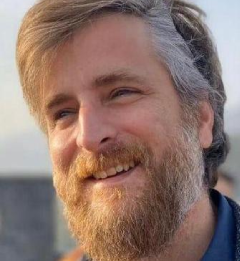
Ginhoux, Florent
Florent Ginhoux, obtained his PhD in 2004 from the University Pierre et Marie CURIE, Paris VI. As a postdoctoral fellow, he joined the Laboratory of Miriam Merad in the Mount Sinai School of Medicine (MSSM), New York where he studied the ontogeny and the homeostasis of cutaneous dendritic cell populations, with a strong focus on Langerhans cells and Microglia. In 2008, he became an Assistant Professor in the Department of Gene and Cell Medicine, MSSM and member of the Immunology Institute of MSSM. He joined the Singapore Immunology Network (SIgN), A*STAR in May 2009 as a Principal Investigator. He is a Web of Science Highly Cited Researcher since 2016. He is also an Adjunct Visiting Associate Professor in the Shanghai Immunology Institute, Jiao Tong University, in Shanghai, China since 2015 as well as Adjunct Associate Professor in the Translational Immunology Institute, SingHealth and Duke NUS, Singapore since 2018. He is also starting a new laboratory focusing on pediatric cancers in the INSERM unit 1015 in Gustave Roussy Hospital, Villejuif, France.
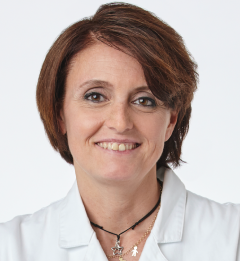
Gregori, Silvia
Silvia Gregori, PhD, is a Group Leader at the San Raffaele Telethon Institute for Gene Therapy (SR-TIGET), IRCCS Ospedale San Raffaele, Milan. Silvia Gregori was originally trained in cell and molecular biology and received her PhD from the University of Milan. After a short period in UK, working on type 1 diabetes, she took a position at Roche Milano Ricerche with Prof. L. Adorini. During this period, she made important contributions unraveling networks of immunological tolerance, first by dissecting the role of Vitamin D3 and its analogues in modulating T cell responses in diabetes and in islet transplantation. In 2001, she took a postdoctoral position in the group led by Prof. MG. Roncarolo at SR-Tiget, where she elucidated new mechanisms of suppression mediated by T regulatory type 1 (Tr1) cells and identified DC-10 as major subset of dendritic cells involved in Tr1 cell differentiation. Currently she leads a research team focuses on the development of efficient therapeutic approaches to (re)-establish antigen-specific tolerance based on the use of in vitro generated tolerogenic DC as medicinal product. Beside this main project, she is also supervising several projects aim at better understanding and modulating immune responses and tolerance to specific antigens/transgenes in pre-clinical and clinical settings.
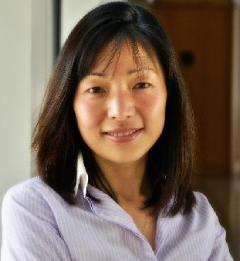
Iwasaki, Akiko
Akiko Iwasaki, is Sterling Professor of Immunobiology at Yale School of Medicine and Howard Hughes Medical Institute Investigator. She received her Ph.D. from the University of Toronto in Canada and her postdoctoral training from the National Institutes of Health. Her research focuses on the mechanisms of immune defense against viruses at the mucosal surfaces, and the development of mucosal vaccine strategies. She is the co-Lead Investigator of the Yale COVID-19 Recovery Study, which aims to determine the changes in the immune response of people with long COVID after vaccination. Dr. Iwasaki also leads multiple other studies to interrogate the pathobiology of long COVID, both in patients, and through developing animal models of long COVID. Dr. Iwasaki was elected to the National Academy of Sciences in 2018, to the National Academy of Medicine in 2019, to the European Molecular Biology Organization in 2021, and to the American Academy of Arts and Sciences in 2021.
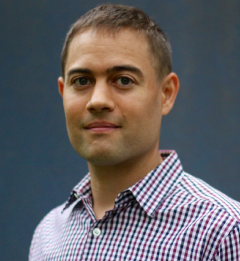
Josefowicz, Steven
Steven Josefowicz, is an Associate Professor in the Department of Pathology and Laboratory Medicine, Division of Cell and Cancer Pathobiology, and faculty in the “Tri-Institutional” Immunology and Microbial Pathogenesis Graduate Program at Weill Cornell Medicine, Memorial Sloan Kettering, and Hospital for Special Surgery in New York City, where he also serves as Director of Admissions. After undergraduate studies at University of California at Berkeley and three years as a research technician working in the area of human immunology and HIV at University of California San Francisco, Steven conducted his graduate work with Alexander Rudensky at the University of Washington and Memorial Sloan Kettering Cancer Center. This PhD work focused on mechanisms of immune tolerance and the differentiation and function of regulatory T cells-- how our powerful immune systems can so effectively combat pathogens while tolerating our own tissues, food, and commensal microbiota. He then joined the laboratory of C. David Allis at The Rockefeller University to study epigenetic mechanisms underlying cellular differentiation and stimulation events in the immune system. Opening his lab at Weill Cornell Medicine in May 2017, ongoing work in his lab, at the intersection of epigenetics and immunology, focuses on questions of molecular epigenetic regulation of transcription, especially as it pertains to rapid immune cell responses to stimulatory cues. Dovetailing with the lab’s mechanistic studies are translational human epigenetic studies to define epigenetic memories of inflammation and explore their functional consequences for hematopoietic and immunologic systems, including potential involvement in “long syndromes”, such as post-infectious inflammatory diseases. A long-term goal is to generate mechanistic knowledge of epigenetic regulation of immunity that will enable treatment and prevention of infection, inflammation, oncogenesis, immune exhaustion, and immune system aging.
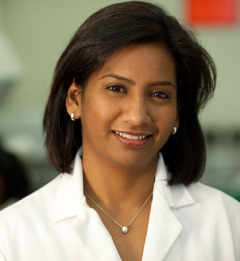
Khader, Shabaana
Dr. Shabaana Khader, received her PhD in Biotechnology from Madurai
Kamaraj University, India where she studied host-pathogen interactions
during the mycobacterial disease, leprosy. Dr. Khader then carried out
her Post-doctoral training at the Trudeau Institute, NY, where she
continued studying host immune responses to another globally relevant
mycobacterial disease, tuberculosis. During her stay at the Trudeau
Institute, Dr. Khader demonstrated a critical role for the cytokine
Interleukin-17 in vaccine-induced immunity to tuberculosis, as well as
described seminal roles for IL-12 cytokines in tuberculosis. Dr. Khader
then joined the University of Pittsburgh in 2007 as Assistant Professor in
the Department of Pediatrics where her lab continued to study the role of
cytokines in immunity to intracellular pathogens such as Mycobacterium
tuberculosis and Francisella tularensis. In 2013, Dr. Khader and her
research team moved to the Department of Molecular Microbiology at
Washington University in St. Louis, where she was the Theodore and
Berta Endowed Professor in the Department of Molecular Microbiology.
She served as the Program Director of the Molecular Microbiology and
Microbial Pathogenesis Graduate Program and was Interim Chair from
2018-2019.
In September of 2022, Dr. Khader was appointed Professor and Chair of the Department of Microbiology at The University of Chicago.
In September of 2022, Dr. Khader was appointed Professor and Chair of the Department of Microbiology at The University of Chicago.
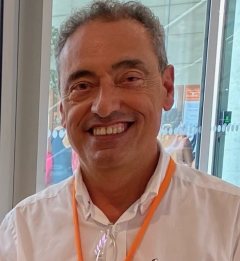
Martín, Carlos
Carlos Martin, de la escuela del Profesor Gómez-Lus, es catedrático de Microbiología en la Facultad de Medicina de la Universidad de Zaragoza y dirige el Grupo de Genética de Micobacterias (TBVI ) que forma parte del CIBER de Enfermedades Respiratorias del Instituto de Salud Carlos III. El Dr. Martin se formó en Instituto Pasteur de París, donde fue investigador permanente en el equipo de la Profesora Brigitte Gicquel, pionera de los estudios genéticos de la tuberculosis. Su formación investigadora previa se centró en los estudios de los mecanismos de resistencia y transposición en bacterias en el Departamento de Bioquímica y Biología Molecular de la Universidad de Cantabria. En los últimos 30 años su trabajo se centra en la investigación y desarrollo de nuevas vacunas contra la tuberculosis. Actualmente colabora con grupos de investigación de Europa, África y América Latina. Él y su equipo han construido y caracterizado la vacuna MTBVAC, hoy en ensayos clínicos, contando como socio Industrial con la biofarmaceutica española Biofabri (Grupo Zendal). Es miembro del Steering Committee de la Iniciativa Europea de Vacunas contra la Tuberculosis (TBVI) http://www.tbvi.eu/. Ha publicado más de ciento setenta publicaciones internacionales que han sido citadas más de 9.000 veces en los últimos años (http://orcid.org/0000-0003-2993-5478). Carlos Martin es miembro de número de la Real Academia de Medicina de Zaragoza y ha recibió los premios, Ibercaja Investigación en Biomedicina 1995, Desarrollo Sostenible “Fundación Ecología y Desarrollo” 2006, y Aragón Investiga del Gobierno de Aragón la Excelencia investigadora 2010 entre otos.
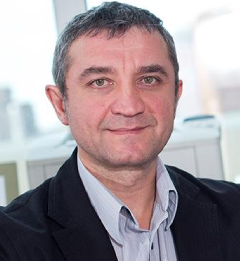
Medzhitov, Ruslan
Ruslan Medzhitov, is Sterling Professor of Immunobiology at Yale School of Medicine and Howard Hughes Medical Institute Investigator. He obtained his PhD from Moscow State University in 1993. He became an assistant professor in 1999 at Yale University School of Medicine in the Department of Immunobiology. He is currently a Sterling Professor of Immunobiology at Yale University School of Medicine and an investigator of the Howard Hughes Medical Institute. His research interests include biology of inflammation, mechanisms of disease, innate immunity, infection biology, allergy, cell signaling and gene regulation. Medzhitov is a member of the National Academy of Sciences, National Academy of Medicine, and European Molecular Biology Organization, a foreign member of the Russian Academy of Sciences and he is a fellow of the American Academy of Microbiology.
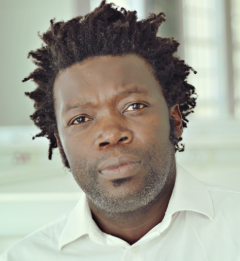
Mhlanga, Musa
Prof.dr. Musa M. Mhlanga, did his undergraduate studies in France & the US and obtained his
PhD in New York at The Rockefeller University & NYU School of Medicine. There, he worked
on the development of molecular beacons for in vitro diagnostics and for imaging of RNA in
living cells with Fred R. Kramer & Sanjay Tyagi. He went on to do a Postdoctoral fellowship at the Institut Pasteur in Paris as a US National Science Foundation fellow. He worked on gene
expression and nuclear organization with a focus on imaging of RNA and transcription. Next, he
started his own lab and moved to South Africa a little over 10 years ago where he continued to work on super resolution imaging, gene regulation, chromatin architecture and noncoding RNA. Recently, he moved to the Radboud University in Nijmegen, where he chairs the department of Cell Biology of the Faculty of Science and is member of the department of Human Genetics at Radboud University Medical Center. His lab works on gene regulation with a focus on the role of genome architecture and noncoding RNA
.
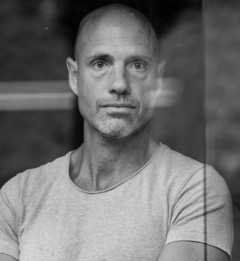
Mulder, Willem
Willem Mulder, Ph.D. (1976), is a biomedical engineer with a background in nanochemistry. Until December 2020, he was tenured Professor at the Icahn School of Medicine at Mount Sinai in New York. Currently, he is Professor of Precision Medicine at the Radboud University Medical Center and the Eindhoven University of Technology.
Mulder's research is at the interface of nanomedicine, biomedical engineering, translational preclinical research, and immunology. His research group develops bioengineering tools to therapeutically regulate and visualize immune responses, with a particular focus on innate immunity. Mulder researches how this part of our immune system can be engaged with nanoemdicine as an approach to treat maladies including cancer, bacterial or viral infection, cardiovascular diseases, autoimmune disorders, and allograft rejection in organ transplantation.
Mulder has published more than 180 scientific publications in top scientific journals, including Nature Nanotechnology, Nature Reviews Drug Discovery, Nature Communications, Science Translational Medicine, Immunity, and Cell.
In addition to his academic work, Mulder co-founded Trained Therapeutix Discovery (ttxdiscovery.com) and serves as the company’s Chief Scientific Officer. In 2021, as part of his return to The Netherlands, he co-founded BioTrip (biotrip.nl), an entrepreneurial engine working to build biotech startups.
Mulder's research is at the interface of nanomedicine, biomedical engineering, translational preclinical research, and immunology. His research group develops bioengineering tools to therapeutically regulate and visualize immune responses, with a particular focus on innate immunity. Mulder researches how this part of our immune system can be engaged with nanoemdicine as an approach to treat maladies including cancer, bacterial or viral infection, cardiovascular diseases, autoimmune disorders, and allograft rejection in organ transplantation.
Mulder has published more than 180 scientific publications in top scientific journals, including Nature Nanotechnology, Nature Reviews Drug Discovery, Nature Communications, Science Translational Medicine, Immunity, and Cell.
In addition to his academic work, Mulder co-founded Trained Therapeutix Discovery (ttxdiscovery.com) and serves as the company’s Chief Scientific Officer. In 2021, as part of his return to The Netherlands, he co-founded BioTrip (biotrip.nl), an entrepreneurial engine working to build biotech startups.
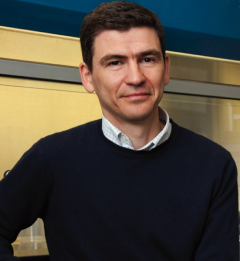
Netea, Mihai
Mihai Netea, was born and studied medicine in Cluj-Napoca, Romania. He completed his PhD at the Radboud University Nijmegen, The Netherlands, on studies investigating the cytokine network in sepsis. After working as a post-doc at the University of Colorado, he returned to Nijmegen where he finished his clinical training as an infectious diseases specialist, and where he currently heads the division of Experimental Medicine, Department of Internal Medicine, Nijmegen University Nijmegen Medical Center. He is mainly interested in understanding the memory traits of innate immunity (trained immunity), the factors influencing variability of human immune responses, and the immune dysregulation during bacterial and fungal infections. He is the recipient of the Spinoza Prize 2016 and an ERC Advanced grant in 2019, and since 2016 he is a member of the Netherlands Royal Academy of Sciences (KNAW).
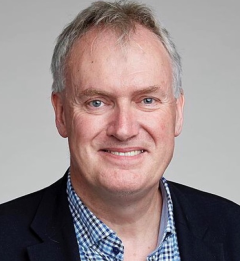
O'Neill, Luke
Luke O’Neill is Professor of Biochemistry in the School of Biochemistry and Immunology, Trinity Biomedical Sciences Institute at Trinity College Dublin, Ireland. He is a world expert on innate immunity and inflammation. His main research interests include Toll-like receptors, Inflammasomes and Immunometabolism. He is listed by Thompson Reuters/ Clarivates in the top 1% of immunologists in the world, based on citations per paper. Professor O'Neill is co-founder of Sitryx, which aims to develop new medicines for inflammatory diseases. Another company he co-founded, Inflazome was recently acquired by Roche.
He was awarded the Royal Dublin Society / Irish Times Boyle Medal for scientific excellence, the Royal Irish Academy Gold Medal for Life Sciences, The Society for Leukocyte Biology (SLB) Dolph O. Adams award, the European Federation of Immunology Societies Medal, the Milstein Award of the International Cytokine and Interferon Society and the Landsteiner Award from the Austrian Academy of Sciences. He is a member of the Royal Irish Academy, EMBO (European Molecular Biology Organisation) and a Fellow of the Royal Society.
He was awarded the Royal Dublin Society / Irish Times Boyle Medal for scientific excellence, the Royal Irish Academy Gold Medal for Life Sciences, The Society for Leukocyte Biology (SLB) Dolph O. Adams award, the European Federation of Immunology Societies Medal, the Milstein Award of the International Cytokine and Interferon Society and the Landsteiner Award from the Austrian Academy of Sciences. He is a member of the Royal Irish Academy, EMBO (European Molecular Biology Organisation) and a Fellow of the Royal Society.
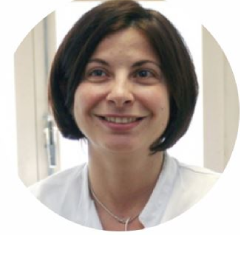
Polverino, Eva
Dr. Eva Polverino is a pulmonology expert in respiratory infections. She is Senior Researcher at the Vall D’Hebron Institute of Research (VHIR) in Barcelona, Spain and Head of ERS Assembly 10; ‘Respiratory Infections’. Dr Polverino graduated from the medical School of the Second University of Naples (SUN) in 1999 and obtained her doctorate from the University of Pisa in 2002. She also holds a master’s degree in the management of Clinical Units from the University of Murcia.
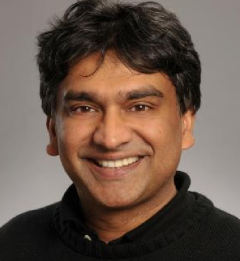
Pulendran, Bali
Bali Pulendran, PhD
Violetta L. Horton Professor, Institute for Immunity, Transplantation and Infection, Department of Pathology, Department of Microbiology and Immunology, Fellow at ChEM-H (Chemistry, Engineering and Medicine for Human Health), Stanford University School of Medicine, Stanford University.
Bali Pulendran is the Violetta L. Horton Professor at the Stanford University School of Medicine, and a member of the Institute for Immunology, Transplantation and Infection, and the Departments of Pathology and Microbiology & Immunology at Stanford University. He is also an adjunct professor at Emory University and the Yerkes National Primate Center, and director of the NIH Center for Systems Vaccinology, at Emory University in Atlanta. He received his undergraduate degree in the Natural Sciences Tripos from Queens’ College, Cambridge University, and his Ph.D., from the Walter & Eliza Hall Institute in Melbourne, Australia, under the supervision of Sir Gustav Nossal. He then did his post-doctoral work at Immunex Corporation in Seattle. Dr. Pulendran’s research is focused on understanding the mechanisms by which the innate immune system regulates adaptive immunity and harnessing such mechanisms in the design of novel vaccines. More recently, his laboratory pioneered the use of systems biological approaches to predicting the efficacy of vaccines and deciphering new molecular correlates of protection against infectious diseases. Dr. Pulendran’s research is published in front line journals such as Nature, Science, Cell, Nature Medicine, and Nature Immunology. Furthermore, Dr. Pulendran is the recipient of numerous grants from the National Institutes of Health, and from The Bill and Melinda Gates Foundation, serves on many editorial boards, and is the recipient of two concurrent MERIT awards from the National Institutes of Health. Dr. Pulendran serves on many advisory boards including that of Keystone Symposia and on the External Immunology Network of GSK. He is listed on Thomson Reuter’s list of Highly Cited Researchers, which recognizes the world's most influential researchers of the past decade, demonstrated by the production of multiple highly-cited papers that rank in the top 1% by citations.
Bali Pulendran is the Violetta L. Horton Professor at the Stanford University School of Medicine, and a member of the Institute for Immunology, Transplantation and Infection, and the Departments of Pathology and Microbiology & Immunology at Stanford University. He is also an adjunct professor at Emory University and the Yerkes National Primate Center, and director of the NIH Center for Systems Vaccinology, at Emory University in Atlanta. He received his undergraduate degree in the Natural Sciences Tripos from Queens’ College, Cambridge University, and his Ph.D., from the Walter & Eliza Hall Institute in Melbourne, Australia, under the supervision of Sir Gustav Nossal. He then did his post-doctoral work at Immunex Corporation in Seattle. Dr. Pulendran’s research is focused on understanding the mechanisms by which the innate immune system regulates adaptive immunity and harnessing such mechanisms in the design of novel vaccines. More recently, his laboratory pioneered the use of systems biological approaches to predicting the efficacy of vaccines and deciphering new molecular correlates of protection against infectious diseases. Dr. Pulendran’s research is published in front line journals such as Nature, Science, Cell, Nature Medicine, and Nature Immunology. Furthermore, Dr. Pulendran is the recipient of numerous grants from the National Institutes of Health, and from The Bill and Melinda Gates Foundation, serves on many editorial boards, and is the recipient of two concurrent MERIT awards from the National Institutes of Health. Dr. Pulendran serves on many advisory boards including that of Keystone Symposia and on the External Immunology Network of GSK. He is listed on Thomson Reuter’s list of Highly Cited Researchers, which recognizes the world's most influential researchers of the past decade, demonstrated by the production of multiple highly-cited papers that rank in the top 1% by citations.
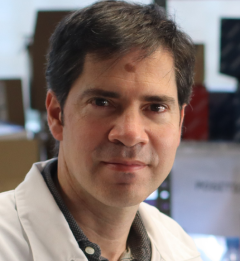
Sancho, David
David Sancho, is Full Professor at the Spanish National Cardiovascular Research Center (CNIC) in Madrid, where he leads the Immunobiology lab. He specialized in clinical Immunology (2000) as a resident at Hospital La Princesa (Madrid), while doing a basic PhD in Universidad Autónoma de Madrid. He took a postdoctoral position at the London Research Institute (Cancer Research UK, 2004), where he found a new C-type lectin (DNGR-1/CLEC9A) that selectively marks the population of human and mouse dendritic cells that cross-present antigens in MHC-I. His work also established the function of DNGR-1/CLEC9A in cross-priming in vivo. On his return to Spain, 2010, he established his laboratory at the CNIC, where he has analyzed: 1) tissue damage and infection sensing by several C-type lectin receptors expressed by DCs and macrophages; 2) specialized functions of conventional type 1 DCs; and 3) metabolic reprogramming in myeloid cells upon innate sensing. He got a European Research Council Starting Grant on sensing tissue damage (2010); He is a partner in a Horizon2020 consortium on DC vaccination and obtained renewed funding from the ERC Consolidator Grant focused on mitochondrial metabolism in myeloid cells.
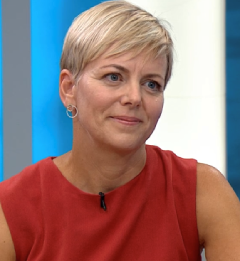
Stabell-Benn, Christine
Christine Stabell Benn, MD, PhD, DMSc, MAE, has worked at the Bandim Health Project in Guinea-Bissau (BHP, www.bandim.org) since 1993. Dr. Benn holds a position as Professor in Global Health at University of Southern Denmark. She is also Chair at the Danish Institute for Advanced Study.
Dr. Benn’s research focuses on health interventions and their effect on overall health in real life. Based on work done in one of the world’s poorest countries, Guinea-Bissau, she has observed that vaccines and vitamins affect overall health to a much larger extent than explained by their well-known specific effects. In addition to their specific effects, they have so-called “non-specific effects”, which may be at least as important as their specific effects. These effects are often sex-differential, and they may affect each other, making the sequence and combination of health interventions more important than usually thought.
Her main contribution has been to take the observations on non-specific effects of vaccines and vitamins forward to randomised controlled trials, being the PI for many trials testing the overall health effects of vitamin A supplementation, BCG vaccine, oral polio vaccine and early measles vaccine. She also bridged to immunology and explored the biological mechanisms underlying the non-specific effects of vaccines and vitamin A. She has taken the observations back to Denmark, to test in randomised trials and observational studies whether non-specific effects of vaccines are important in high-income settings as well. Most recently, she is testing whether the non-specific effects of BCG vaccine and oral polio vaccine can provide partial protection against COVID-19.
Dr. Benn (@StabellBenn) has a strong position in the public debate. She is on the top-100 lists of most powerful people in Danish Health and the most powerful Danish researchers on social media.
Her main contribution has been to take the observations on non-specific effects of vaccines and vitamins forward to randomised controlled trials, being the PI for many trials testing the overall health effects of vitamin A supplementation, BCG vaccine, oral polio vaccine and early measles vaccine. She also bridged to immunology and explored the biological mechanisms underlying the non-specific effects of vaccines and vitamin A. She has taken the observations back to Denmark, to test in randomised trials and observational studies whether non-specific effects of vaccines are important in high-income settings as well. Most recently, she is testing whether the non-specific effects of BCG vaccine and oral polio vaccine can provide partial protection against COVID-19.
Dr. Benn (@StabellBenn) has a strong position in the public debate. She is on the top-100 lists of most powerful people in Danish Health and the most powerful Danish researchers on social media.
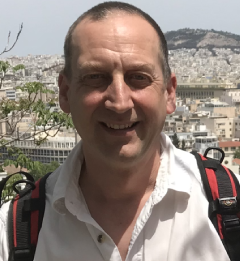
Zeiss, Dietmar
Dietmar Zaiss, studied Cell & Molecular Biology, in Germany at the Philipps University in Marburg and in the USA, at Syracuse University. He received his PhD in Cell Biology from the Humboldt University in Berlin / Germany, before he moved to the Lab of Tim Mosmann at the University of Rochester in Upstate New York, where he discovered that the EGF-like growth factor Amphiregulin is a Type-II cytokine, involved in worm rejection. As a Group Leader at the University of Utrecht in The Netherlands, he then showed that Amphiregulin enhances regulatory T-cell function, and at the University of Edinburgh, where he holds a faculty position since 2013, he demonstrated that Amphiregulin is mediating its effect via the local activation of latent TGFβ complexes. Since Fall 2021, he holds a professorship for Immune Cell Communication at the University of Regensburg in Germany and focuses his research on utilizing this knowledge for the development of novel therapeutic approaches to treat inflammation-associated diseases.
